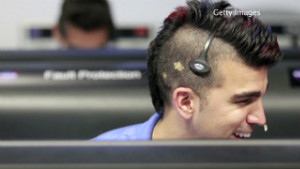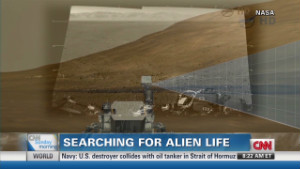With New Delhi's iconic Red Fort as a backdrop, Indian Prime Minister Manmohan Singh announced Wednesday his country has set its sights on the Red Planet.
In a Wednesday speech marking India's independence day, Singh said his government has approved plans to put an unmanned probe in orbit around Mars. The mission "will be a huge step for us in the area of science and technology," he said.
It's an ambitious goal, with a planned launch in November 2013 for a 10-month flight, said Kiran Karnik, a former official with the Indian Space Research Organization.
"By the time the mission gets there, Mars will be comparatively the closest," Karnik told CNN's sister network CNN-IBN. "So there's a small window in which we need to make a launch and that's the reason the mission has to go up next year."
The goal of the mission is to search for clues to the "geology, origin, evolution and sustainability of life" on Mars, according to an ISRO report published earlier this year.
India's space program launched its first Earth satellite in 1975 and put an unmanned probe into orbit around the moon in 2008. It plans to launch its first manned spaceflight in 2016, though an Indian cosmonaut, Rakesh Sharma, flew aboard a Soviet space mission in 1984.
Mars 'Mohawk Guy' inspires Obama
The announcement comes as the U.S. space agency NASA is basking in the successful landing of its Curiosity rover August 6.
If the 2013 mission is successful, India would become the first Asian country to reach Mars: A 1998 attempt by Japan failed to insert itself into martian orbit, while a Chinese probe was lost along with the Russian Phobos-Grunt mission in January. But Karnik said India shouldn't be concerned with stunts.
"My only concern, if anything, is not the risk of failure," he said. "It's the risk that the program should not get diverted to these high-visibility, somewhat prestige-related events."
Should Mars exploration be a priority for India, in light of the recent infrastructure issues raised by power outages? Comment below.
CNN's Ram Ramgopal and Christian DuChateau contributed to this report.


